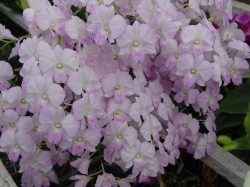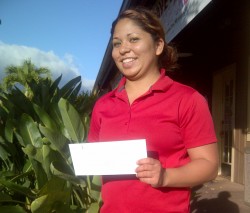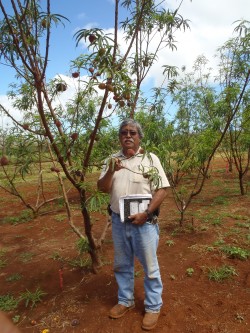Taro Variety Field Day 2013
UH CTAHR Molokai Extension News Release
Not too long ago, rice, pasta and bread were not a major part of our diet in Hawaii. Instead, taro, or kalo, was the main source of food that provided dietary carbohydrate for Native Hawaiians. They produced kalo on all the islands and on as many as 50,000 acres of the best upper and river valley lands in order to maintain the health of the population of 500,000 or more. In order to improve their food security, Native Hawaiian developed more than 300 varieties of taro.
Today only about 70 of the varieties are left. …














